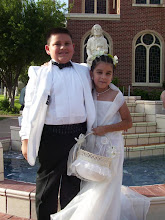
Your Own, Sylvia: A Verse Portrait of Sylvia Path by Stephanie Plath
This book depicts the life of an inspiring poet from the day she was born to the day she took her own life. Her story is told in verse in the many styles Sylvia used in her own poetry. The poems are in chronological order of Sylvia's life and they are told in different point of views: her mother (Aurelia Plath), her father (Otto Plath), her husband, her lovers, colleagues and friends. As a child, Sylvia showed her uniqueness by her poetry. The Boston Herald published one of her poems at the age of eight. Sylvia's fascination with boys started at the age of thirteen and it is depicted in the poem "Boy Crazy". At the age of seventeen she graduated high-school, first in her class and went on to Smith College with two scholarships. In 1953, Aurelia seeks psychiatrist help for Sylvia to deal with her severe depression. Shock treatments and medication were administered to her. Sylvia attempted suicide but was unsuccessful. She missed only one semester at Smith and graduated in 1955, at the age of twenty-two. She attends University of Cambridge and meets her future husband Ted Hughes. They got married in London and they begin to have financial troubles. They come to America and Sylvia starts teaching at Smith. She has a hard time getting her work published and they head back to England. Ted becomes successful in publishing his work and Sylvia has two children. Their relationship begins to unravel and Ted begins a relationship with another woman. Ted abandons Sylvia and she gets into another deep depression. At the age of thirty, Sylvia commits suicide and this time she is successful. She accomplishes this by inhaling carbon monoxide from her gas stove. She makes sure her children do not suffer from the carbon monoxide poisoning by wedging a towel under their door. This book is recommended for middle to upper grades. I would not recommend it to reluctant readers since the type of poetry might confuse or frustrate them. I feel that the books strength is that it includes subtitles that tell the reader who is speaking. Also, in each individual poem, the author includes notes that serve as a timeline in Sylvia Plath's life. Teachers can use this to teach point of view, symbolism, or poetry styles to their students.
This book depicts the life of an inspiring poet from the day she was born to the day she took her own life. Her story is told in verse in the many styles Sylvia used in her own poetry. The poems are in chronological order of Sylvia's life and they are told in different point of views: her mother (Aurelia Plath), her father (Otto Plath), her husband, her lovers, colleagues and friends. As a child, Sylvia showed her uniqueness by her poetry. The Boston Herald published one of her poems at the age of eight. Sylvia's fascination with boys started at the age of thirteen and it is depicted in the poem "Boy Crazy". At the age of seventeen she graduated high-school, first in her class and went on to Smith College with two scholarships. In 1953, Aurelia seeks psychiatrist help for Sylvia to deal with her severe depression. Shock treatments and medication were administered to her. Sylvia attempted suicide but was unsuccessful. She missed only one semester at Smith and graduated in 1955, at the age of twenty-two. She attends University of Cambridge and meets her future husband Ted Hughes. They got married in London and they begin to have financial troubles. They come to America and Sylvia starts teaching at Smith. She has a hard time getting her work published and they head back to England. Ted becomes successful in publishing his work and Sylvia has two children. Their relationship begins to unravel and Ted begins a relationship with another woman. Ted abandons Sylvia and she gets into another deep depression. At the age of thirty, Sylvia commits suicide and this time she is successful. She accomplishes this by inhaling carbon monoxide from her gas stove. She makes sure her children do not suffer from the carbon monoxide poisoning by wedging a towel under their door. This book is recommended for middle to upper grades. I would not recommend it to reluctant readers since the type of poetry might confuse or frustrate them. I feel that the books strength is that it includes subtitles that tell the reader who is speaking. Also, in each individual poem, the author includes notes that serve as a timeline in Sylvia Plath's life. Teachers can use this to teach point of view, symbolism, or poetry styles to their students.

No comments:
Post a Comment